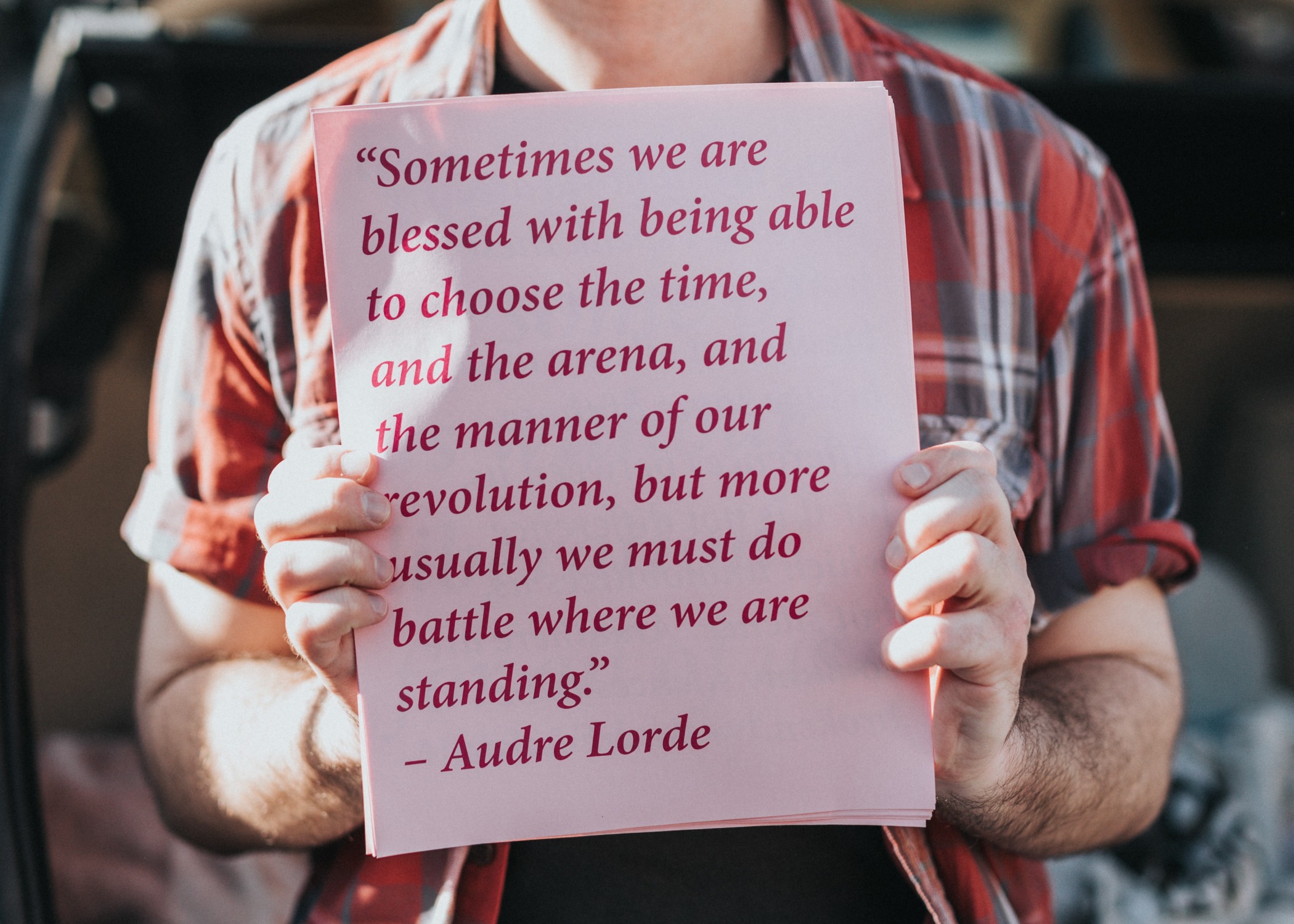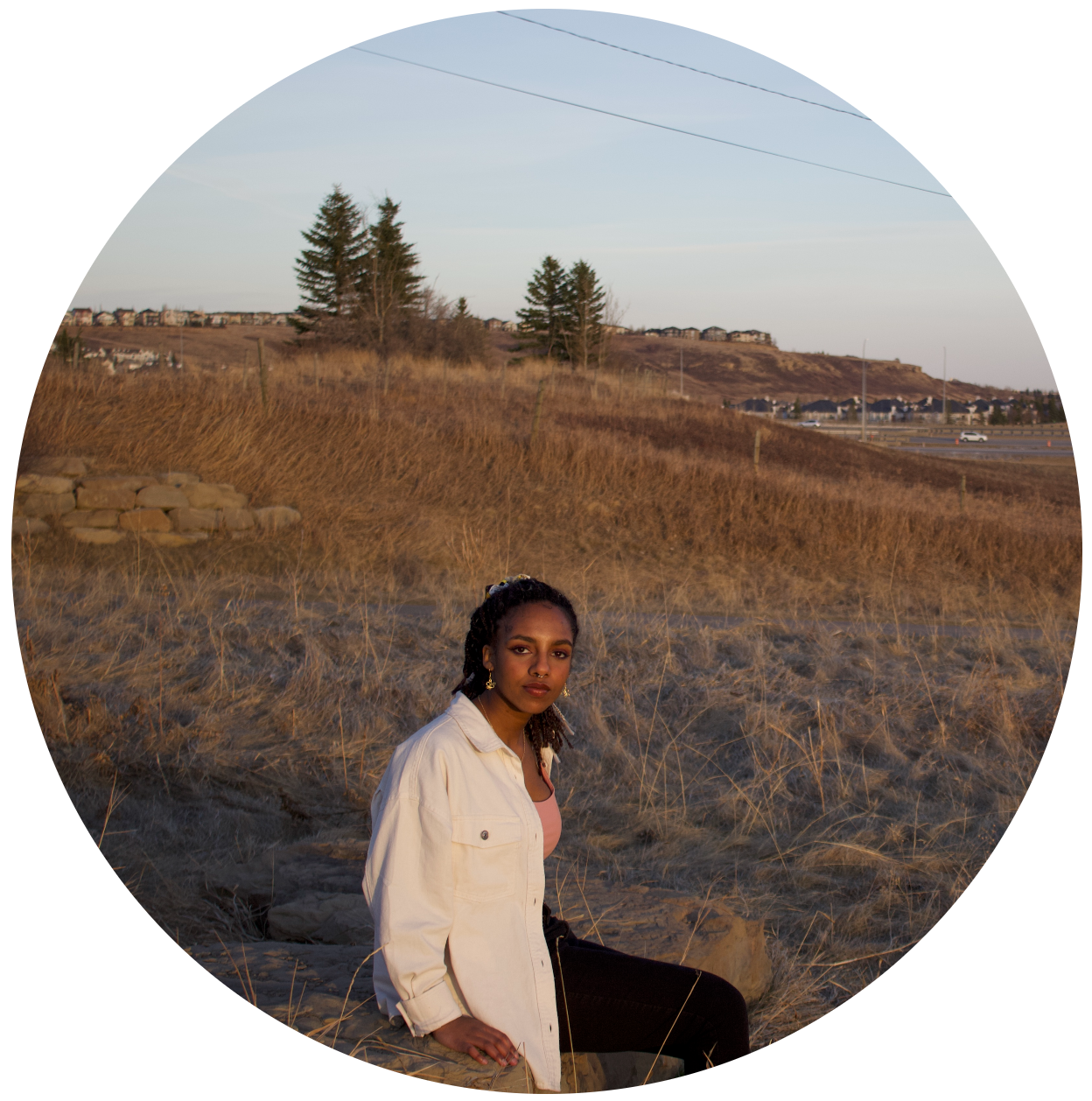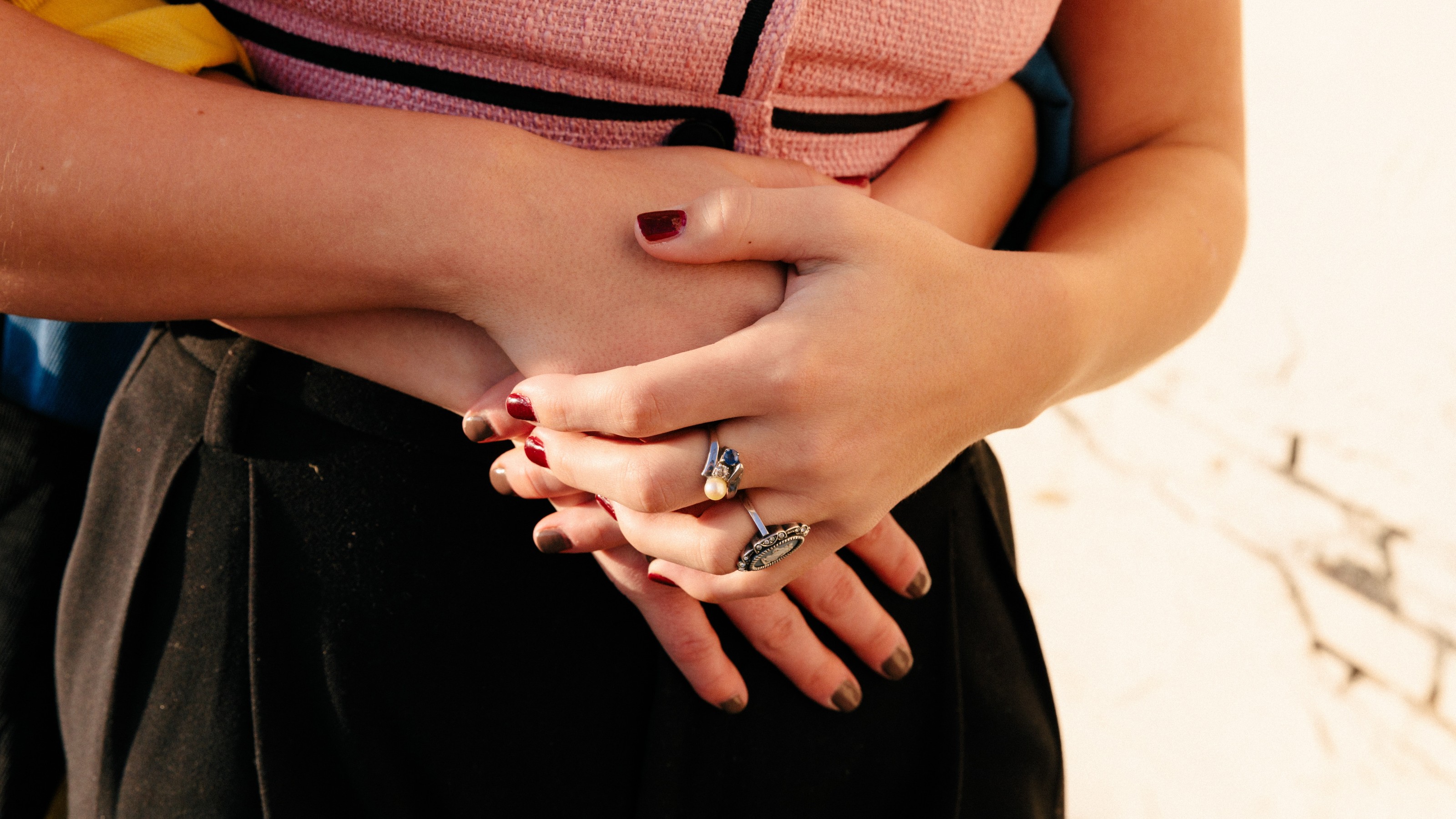I think it was pretty obvious that I was non-binary from the start. As a self-proclaimed "tomboy," I refused to fit into a gender mold. Picture a kid skateboarding, wearing WWE-inspired jewelry and a need to prove they were stronger than other kids—that was me. Between arguing with my mom over clothing and helping my dad with house repairs, I always felt I occupied a unique gender position between the binary labels. While I didn’t have the language to explain until later on, I knew I wasn’t “like other girls” (the joke was right there)!
I started realizing I was queer in Grade 4. I kept noticing signs and would resort to taking “Am I gay?” quizzes to tell me I was bisexual. My dad was a priest, and he led one of the most strict Christian denominations, and I was already a troublemaker for refusing to follow gender conventions. I essentially grew up in the Ethiopian Orthodox Church, which has a legacy that dates back thousands of years with a focus on the Old Testament. As a result, Orthodoxy is interwoven into the culture, while it is also very prominent within many Black communities. Although some Christian denominations are more accepting of 2SLGBTQ+ peoples, the Orthodox Church is fundamentalist in nature, leaving little room for interpretation on the acceptance of queer and trans peoples. While I was confident with myself, I recognized that my actions reflected on my parents, and tight-knit communities love gossip. This created a disconnection between my internal need for recognition and my parents’ desire to paint the picture of the perfect family. I attempted to hold off for a couple of years, but after my best friend confessed her feelings for me in junior high—well, that created the perfect storm. As the firstborn of a priest, this only made my coming out journey all the more interesting!
I had my first queer relationship early on (if you count dating in junior high as a relationship), but just because I knew who I was didn’t mean my elders could accept that. I can’t tell you the number of people who said “it’s just a phase,” or “with just enough prayer, you will go back to being straight.” My parents chalked my queerness up to non-Christian influences, forcibly transferring me into an all-Christian high school. I lost contact with all my friends and was alone and isolated in an environment where I feared someone would find out I was queer and take this as an opportunity to “pray” for me. So I went right back into the closet until graduation.
Thankfully, I made it out without religious conversion therapy, but I did actively try to fit in by hiding my queerness. It’s strange to think about how hard I tried to fill the gap between Christianity and my queerness, but I think it’s indicative of wanting to belong. I sang on my high school worship team, went out of my way to attend an Ethiopian Pentacostle youth group and even taught Sunday School for two years. At that point in my life, I already felt like I didn’t belong in the general populace of Albertan students. I believe it was the accumulation of existing outside of the “norm” as a Black, second-generation immigrant, with a deviant gender identity. I wanted to see if there was any way to reconcile the gap between myself and the communities that raised me, and yet, the more I tried to fit in, the more I compromised who I was. No matter how dynamic I let myself be, approaching the other position from different perspectives, the distance between us only enlarged through time. While I came to terms with this internally, I decided to focus my energy on my grades.
(I want to mention that, while I was unable to reconcile the divide between certain doctrine teachings and my capacity for self-love, I have some queer and trans friends who have been able to and are happy practicing their faith without compromising themselves.)

After graduating, I left my hometown of Calgary for Edmonton to attend University of Alberta, and finally had the space to bloom into my most authentic self (you can read more about my journey as a social justice advocate here). By my second year, I was in a committed queer relationship, came out on social media and started working at The Landing. That said, my dad and I didn’t talk for two years. The backlash from my extended family was also harsh, with some asking why I hated my parents enough to put this “shame” on them. I refused to listen and simply cut people out of my life when they made me feel bad for choosing myself. While it was hard, I think the time apart was essential for family and community members to recognize that I have the personal autonomy to make my own life decisions and live accordingly.
The time away gave us all a fresh perspective, and so when the first wave of restrictions happened in March 2020 I went back to live with my family. (That said, I would encourage those with similar experiences to first establish strong boundaries and emotional resilience before returning to unhealthy, diminishing environments.) Although my parents and I have found some level of acceptance for our competing views of the world, there was a period when I was homeless. When/if you plan on engaging with past relationships, I would recommend having savings, a backup plan and actively prioritizing your wellbeing throughout it.
While I found belonging within the university context, there is still the ever-present reality of violence, social isolation and vulnerability within the 2SLGBTQ+ community (and even more so for Black, Indigenous, POC, trans and disabled members). I have taken the route of protecting my peace, prioritizing my mental health and healing, and supporting social justice initiatives. Though there are days I am disheartened by the aggravatingly slow pace of social justice change, my therapist continues to remind me of how I can fill my cup, let go of the things I cannot control and find an internal sense of peace (i.e. writing about my experience here). There is no "right way" to exist as a part of the 2SLGBTQ+ community, so please tailor your decisions to your experience. Regardless of what your journey with identity looks like, I hope that my story provides a silver lining to these experiences, demonstrating that you can overcome social pressure to choose yourself.
My intention with this blog post is to relate to people who are struggling or have struggled in their acceptance of self, especially due to societal marginalization and hostile family environments. This reflection on my experience of coming to terms with my queer non-binary identity within the Ethiopian and Black community is not representative of the values of the entirety of these communities, or even of every person within a similar identity category. Instead, I intend to shed light on how my experiences are emblematic of a social value system that devalues queer and trans peoples—projecting shame, rejection and superficial tolerance. I hope that my story inspires those struggling within the confines of these environments and expectations to choose themselves and begin the healing of making sense of their own stories. Even if you can't relate to my experience, I welcome you to consider the values and beliefs within our communities that lead to marginalization, bullying and discrimination. At the end of the day, we are all in a community with one another. It’s only through these (sometimes difficult) conversations that we can create a better community that genuinely supports all of its members.

About Rain
Rain is in their fifth and final year of a double major in Political Science and Womens’ and Gender studies. When they aren't writing papers, Rain is trying to keep their plants alive, watching anime or philosophizing why the world is the way it is. Beyond that, Rain is passionate about creating sustainable social justice through their degree and working with their surrounding communities.
